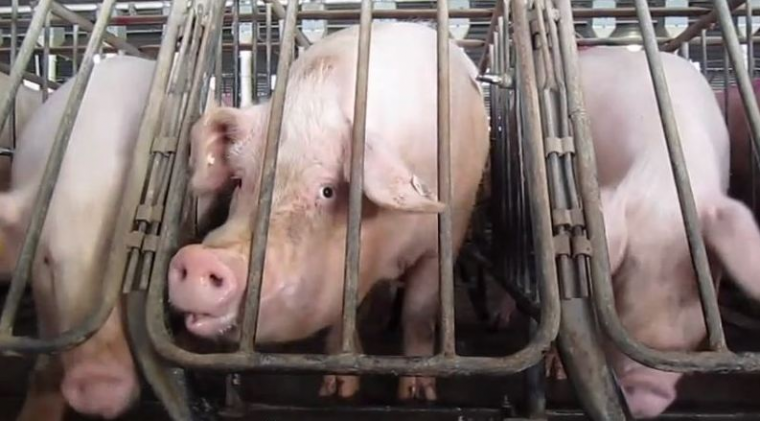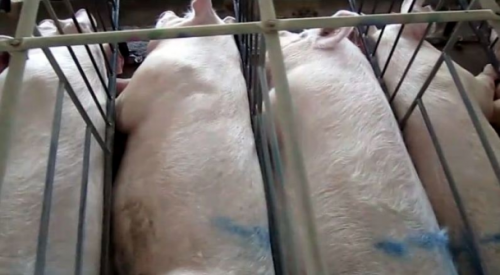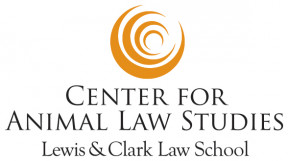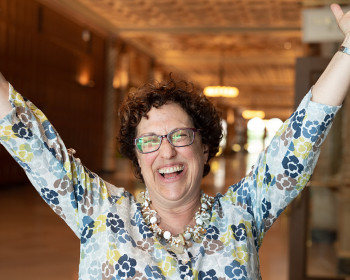U.S. Supreme Court Upholds California Prop 12: Get Farmed Animals Out of Cages
Professor Joyce Tischler summarizes why the United States Supreme Court’s decision upholding Proposition 12 is monumental for animals.
Open gallery

Credit: Humane Society of the United States, CC by 3.0
Today, in National Pork Producers Council v. Ross, the U.S. Supreme Court upheld California’s Proposition (“Prop”) 12—a law passed by voters of that state to establish minimum space requirements for sows (female pigs used for breeding piglets), egg-laying hens, and calves who are raised for veal—and to ban the in-state sale of products that are derived from these animals when they are confined in housing that falls below the minimum space requirements. This is a long overdue victory for those who are working to end the extreme and cruel confinement of farmed animals by the meat, dairy and egg industries and it is the sort of case that demonstrates the power of the law to fuel change for the better treatment of animals.
In 2018, California voters passed Prop 12, which established minimum space requirements based on square feet allotted to each farmed animal. Under Prop 12, later codified as Cal. Health & Safety Code §§ 25990-25994, confinement is defined as “cruel” if it prevents a pig, (calf or hen) from “lying down, standing up, fully extending the animal’s limbs, or turning around freely.” § 25991(e)(1). Before Prop 12 was set to go into effect, the National Pork Producers Council and the American Farm Bureau Federation (“pork producers”) sued the State of California and sought to overturn Prop 12.
In 2021, the 9th Circuit Court of Appeals unanimously affirmed the dismissal of the lawsuit and the district court’s holding that the pork producers failed to state a claim as a matter of law. The pork producers appealed to the U.S. Supreme Court, which granted certiorari.
Shortly before the Supreme Court held oral argument on October 11, 2022, I shared an overview of the potential impact of the decision in a piece titled The Case Against the Extreme Confinement of Farmed Animals. Often, when a lawsuit is appealed to a higher court, the underlying problem gets lost in a sea of technical legal arguments. So, my piece focused on the underlying animal abuse problems, how Prop 12 came to be, and how this case made its way to the Supreme Court, so that what is at stake for the animals remains vivid.
Today, those vivid stakes are on display. Writing for the majority, Justice Neil Gorsuch affirmed the dismissal of the lawsuit. The pork producers argued that Prop 12 is unconstitutional because it has the “‘practical effect of controlling commerce outside the State,’” and/or that it would “impose substantial new costs on out-of-state pork producers who wish to sell their products in California.” The majority rejected both of these arguments. It noted that many American pork producers have already converted to group housing systems, which give sows substantially more room to move about and socialize with other sows. It also acknowledged the concession made by the pork producers that states have the power to ban the in-state sales of products that they believe are morally objectionable, such as products manufactured in violation of child labor laws. The majority rejected the pork producers’ argument that the burdens imposed by Prop 12 outweigh the benefits of that law.

Credit: Humane Society of the United States, CC by 3.0
While it will take time to fully analyze the Court’s lengthy opinion and its ripple effects, the importance of this decision to the protection of farmed animals cannot be overstated. Pigs are highly intelligent and social animals. Ignoring even their minimum needs, most of the American pork industry houses each sow in a “crate” that is only slightly larger than the sow. It is physically impossible for the sow to turn around or walk. Scientific studies conclude that sows in gestation crates suffer from lameness brought on by the inability to move and exercise. They also develop cardiovascular problems and are at increased risk of urinary tract infections. In addition to their physical suffering, the sows are bored and frustrated, because they have nothing to do with their time, no ability to forage or socialize as they would in a more natural environment. As the Court noted at page 3 of its decision:
“Proponents [of Prop 12] observed that, in some farming operations, pregnant pigs remain ‘[e]ncased’ for 16 weeks in ‘fit-to-size’ metal crates. M. Scully, A Brief for the Pigs: The Case of National Pork Producers Council v. Ross, National Review, July 11, 2022, https://www.nationalreview.com/2022/ These animals may receive their only opportunity for exercise when they are moved to a separate barn to give birth and later returned for another 16 weeks of pregnancy confinement—with the cycle repeating until the pigs are slaughtered. Ibid. Proponents hoped that Proposition 12 would go a long way toward eliminating pork sourced in this manner ‘from the California marketplace.’”
(It should be noted that the sows are moved into farrowing crates to give birth. This does not provide them with more room. They have the same minimal amount of space as they have in the gestation crates, but there is an additional space for the piglets.)
California voters overwhelmingly rejected the cruel housing that the pork industry tells us is normal and acceptable. By a 63% majority, Californians told the industry that crowding farmed animals in cages is neither normal nor acceptable. The U.S. should be leading the world in progressive laws that offer humane treatment to animals. In fact, it is lagging far behind other countries, and today’s decision is an important step forward. It underscores the power of voters to demand legal change to stop the industrial animal agriculture industry’s mistreatment of farmed animals.
Congratulations go to all of the attorneys, advocates, organizations, and supporters that have worked so hard to pass and now, uphold Prop 12, and to mandate more humane living conditions for sows currently suffering in the intensive confinement imposed on them by the pork industry in the U.S.
For the full decision, visit this link.

The Center for Animal Law Studies

More Center for Animal Law Studies Stories
Center for Animal Law Studies is located in Wood Hall on the Law Campus.
MSC: 51
email cals@lclark.edu
voice 503-768-6960
Center for Animal Law Studies
Lewis & Clark Law School
10101 S. Terwilliger Boulevard MSC 51
Portland OR 97219

